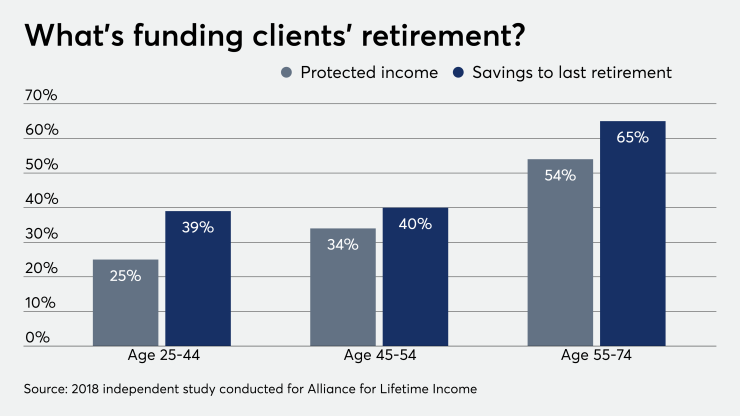Welcome to Retirement Scan, our daily roundup of retirement news your clients may be talking about.
Clients may retire earlier than planned, and it could pose a serious risk to their long-term savings, according to this article in Motley Fool. That's because leaving the workforce early means needing more cash to cover a longer retirement horizon and having less time to build their savings, according to the article. To prepare for the possibility of an early retirement, clients are advised to start saving as soon as possible and diversify their earnings by creating multiple sources of income.
Clients planning for retirement will face a 6% penalty for saving more money in their IRAs than the annual contribution limit, according to this article in Kiplinger. To avoid the penalty, IRA investors are advised to draw out the excess contributions — including its earnings — by the tax-filing deadline. Clients will also owe ordinary income taxes on the earnings and may face a 10% early withdrawal penalty if they are below the age 59 1/2. "If the value goes down, there's no tax penalty," an expert says.
Florida, Colorado and New Hampshire are among some of the best states for seniors to retire to this year, according to this article in CNBC. Also in the ranking are Utah and Wyoming, according to the article. Before relocating, seniors are advised to consider a number of factors, such as familiarity with the location's culture and availability of suitable housing.
These employers offer plans that pay as much as $6.52 per hour in contributions.
Retirees can tap their home equity to apply for a mortgage regardless of their age, thanks to the Equal Credit Opportunity Act, according to this article in The Wall Street Journal. Retired borrowers may qualify depending on the income they collect from Social Security, pension plans, dividends and interest. Distributions from 401(k)s and IRAs, as well as stocks, bonds and mutual funds will also be considered if their earnings are not enough and qualifying remains a problem.







